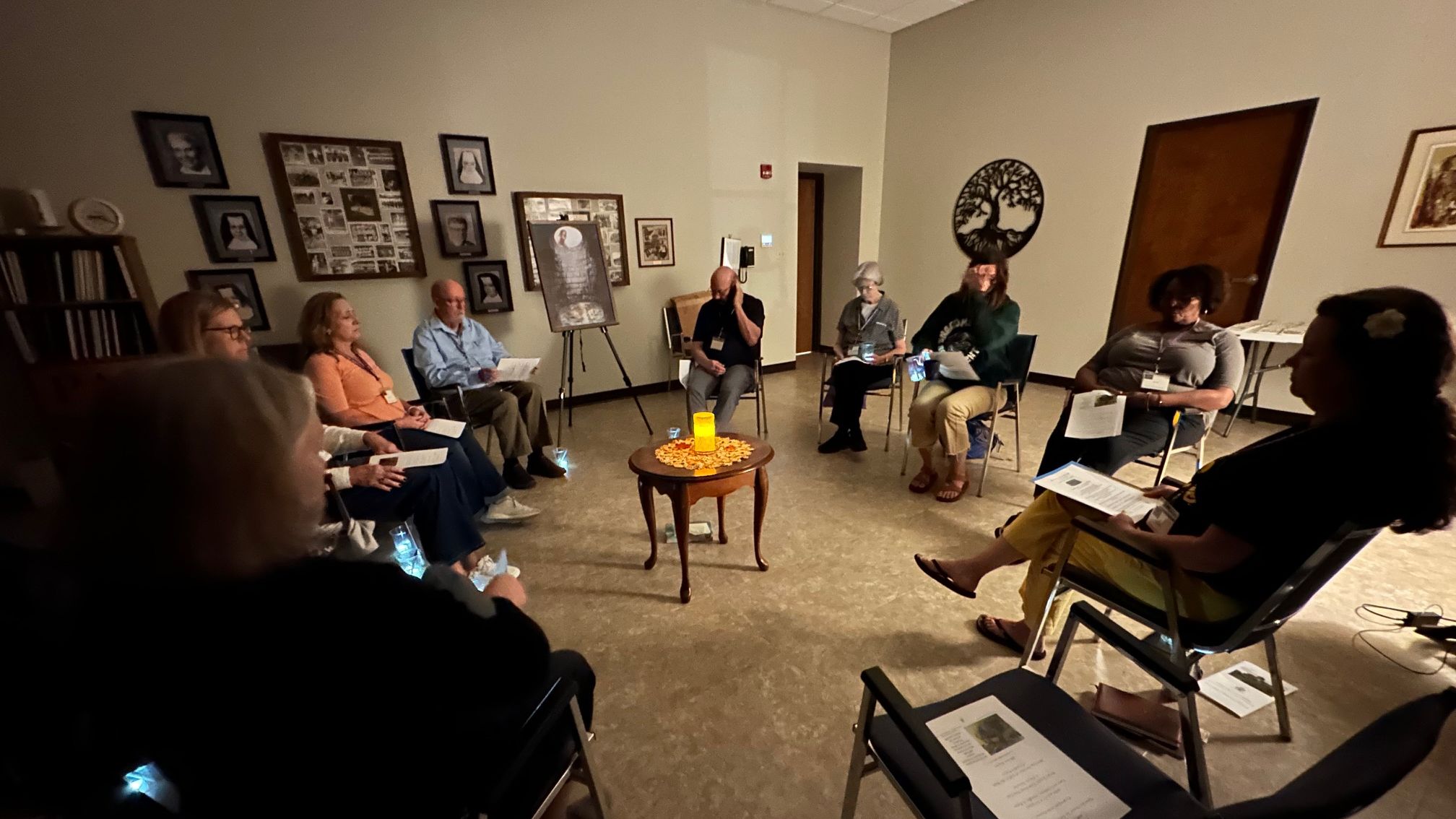
Ubuntu in Action: Building True Spiritual Community
Oct 08, 2025“Our spiritual journeys are not ours alone,” writes Ann Kline. That sentence opens a doorway into a deeper truth: we are not solitary seekers, but participants in the ongoing flow of God’s own prayer.
In group spiritual direction, we listen, not just for ourselves, but for each other. We ask not what we want God to do, but what God is already doing. And then, with courage and humility, we ask what God would have us do in response.
This is reimagining intercessory prayer. It’s not a list of requests, but a posture of availability. It’s the “here I am” prayer of Abraham and Isaiah. It’s tikkun olam, the Jewish tradition of offering ourselves to the healing work God is already doing in the world. It’s prophetic. It’s subversive. And it’s deeply transformative.
When we set aside our agendas and listen for God’s movement in another’s life, we open ourselves to being changed. Yet, transformation, while beautiful, is rarely comfortable.
Kline reminds us that “prayer has more the power of a snail than of a bulldozer.”
In a world that often feels like it’s crashing through itself, this image is a balm. The slow work of God is patient, deliberate, and deeply rooted. Change comes not through force, but through presence. Group spiritual direction offers a safe space for this kind of change. It's a place where individuals can consider, grow, and be held in love.
Teresa Blythe expands this vision, reminding us that spiritual direction is not just something we do as much as it is who we’re becoming. Whether we’re leading couples, lectio groups, or boards, we are called to be the “essential non-anxious presence,” paying attention to God and to the group without clinging to outcomes. It’s a way of being that invites trust, spaciousness, and grace.
Cindy Lee challenges our Western notions of community, which often prioritize performance over presence. True hospitality, she says, is a posture of openness, inviting others to come as they are. Before we can offer that to others, we must experience it within ourselves. Group spiritual direction isn’t about creating a perfect container. It’s about cultivating a safe, welcoming space where people can bring their whole selves and be held with care.
Lee’s reflections on ubuntu, which is the African concept that we are inextricably connected to one another and to all of creation, invites us to move beyond “Jesus and me” spirituality. In group spiritual direction, we listen for what God is saying and doing in the lives of others. We feel our collective emotions. We witness suffering. We stay with. Like the women at the cross, we may not be able to fix what hurts, but we can remain present. We can hold silence. We can pray.
This is the slow work of God. And it is enough.
To all who are seeking, leading, or simply learning to listen:
You don’t have to have the answers. You don’t have to fix what’s broken. You are invited to show up, to stay, and to trust the Spirit’s unfolding.
~Beth Bernard, Student from WTC's Spiritual Direction School
Reflection based on the student's readings of:
“Widening the Lens: The Gift of Group Spiritual Direction,” by Ann Kline, Presence, Vol. 10, No. 2, June 2004, 38-42.
(PDF), "Forms of Spiritual Direction" by Teresa Blythe, Spiritual Direction 101, 68-78.
"Part 3: Orientation-Collective" of Our Unforming by Cindy Lee, 99-135.
Stay Connected!
Updates and News sent directly to your inbox.
We hate SPAM. We will never sell your information, for any reason.

